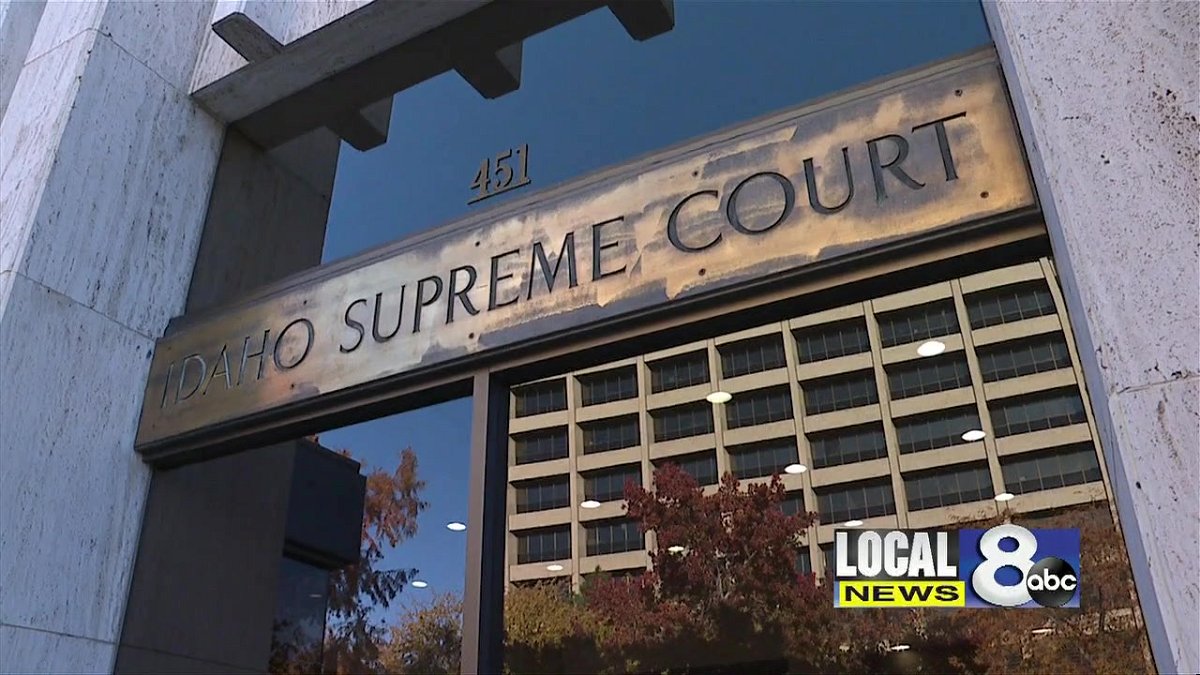Idaho Supreme Court hears arguments over 3 abortion laws

BOISE, Idaho (AP) — The Idaho Supreme Court heard arguments in lawsuits over three of Idaho’s abortion laws on Thursday, sharply questioning attorneys about the value placed on a pregnant woman’s health, the state’s interest in ensuring that pregnancies are carried to term and Idaho’s long history of anti-abortion laws.
The high court earlier this year allowed the laws to go into effect, and as a result Idaho is one of several states where abortion is almost entirely outlawed. A final ruling on the laws — including one that criminalizes all abortions but allows physicians to defend themselves by showing the abortion was needed to save the pregnant woman's life, one that criminalizes most abortions after about six weeks’ gestation and one that allows even extended potential relatives of a fetus or embryo to sue an abortion provider — could be handed down sometime in the coming months.
“For 50 years, generations of Idaho women have had control over their bodies and lives with respect to the most intimate personal and private decision imaginable whether to carry a pregnancy to term or whether to terminate it,” Alan Schoenfeld, the attorney representing a regional Planned Parenthood affiliate, told the court. “The Idaho Legislature seeks to upend women’s lives and strip them of this fundamental right — one that’s necessary to the exercise of numerous other rights that all Idahoans cherish.”
Idaho's Constitution recognizes that people have the right to privacy, to bodily autonomy, and to procreate, and the procreation right was recognized by the state Supreme Court even before the right to abortion was enshrined in Roe v. Wade, Schoenfeld said.
But Justice Gregory Moeller challenged that idea.
“It would seem to me that procreation would be the opposite of abortion,” the justice said.
Schoenfeld countered that the procreation right includes the right to decide whether to do it all, and the decision itself is protected by the constitutional promises of liberty, safety and privacy.
“The decision about whether to submit one's body to the 40 weeks of toil entailed in pregnancy, I think, is respected by the Constitution,” the attorney said.
Megan Larrondo, the deputy attorney general representing the state, said that the right to liberty doesn't include the right to end another human life. The right to liberty has to have boundaries, she said, “because it could go crazy places.”
Justice John Stegner asked if protecting the health of the mother should be one of those boundaries.
“It seems like you are arguing that the unborn life has priority over the woman who became pregnant,” Stegner told Larrondo.
When it's a choice between the fetus' life and the life of the mother, the life of the mother should take priority, Larrondo told the court. But when it's a choice between the fetus' life and the health of the mother, the fetus' life should be protected even at the cost of the mother's health, she said.
Justice Colleen Zahn asked pointed questions about the state's claim that Idaho has a “compelling interest” in protecting the lives of “unborn children." Idaho is one of the few states that shields parents from civil or criminal prosecution when a child dies of an easily treatable illness if the parents say medical treatment is against their religious beliefs.
A small Christian sect in southwestern Idaho that eschews medical treatment in favor of prayer has had multiple children die of treatable illnesses like infections or pneumonia in recent years. Idaho lawmakers have consistently rejected efforts to change the faith-healing laws, despite hearing testimony from law enforcement officers and former sect members about children who died or were left permanently disabled from what would be considered medical neglect in other communities.
“Does the state not have a compelling interest in saving the lives of those born children who could be saved?” Zahn asked. “I'm not sure that the state is consistently asserting the ‘compelling state interest.’”
But Larrondo said it's reasonable to treat faith-healing deaths and abortion differently, because one is the result of an absence of a procedure to treat a health issue while the other is a procedure designed specifically to end a life.
Monte Stewart, the attorney representing the Idaho Legislature, urged the justices to follow the reasoning laid out by the U.S. Supreme Court in overturning Roe v. Wade.
Any decision recognizing that there is a “fundamental right at stake” for pregnant women would turn the state’s highest court into legislators rather than judges, Stewart said.
Idaho's legal battles over abortion are playing out on several fronts. The U.S. Department of Justice sued the state in federal court earlier this year alleging that one of the laws criminalizing nearly all abortions violates a federal health care law that requires Medicare-funded hospitals to provide stabilizing health care to patients in medical emergencies. A federal judge has temporarily barred the state from enforcing that law in cases involving medical emergencies.
The Satanic Temple has also sued the state in federal court because the nontheistic religious group says the laws banning abortion interfere with members' right to freely exercise their religious beliefs. The Satanic Temple doesn't believe in a literal Satan, but considers the figure an metaphor for the fight against religious tyranny. The religious organization says one of its central beliefs is that people have the right to control their own bodies, and that includes abortions for unwanted pregnancies.






